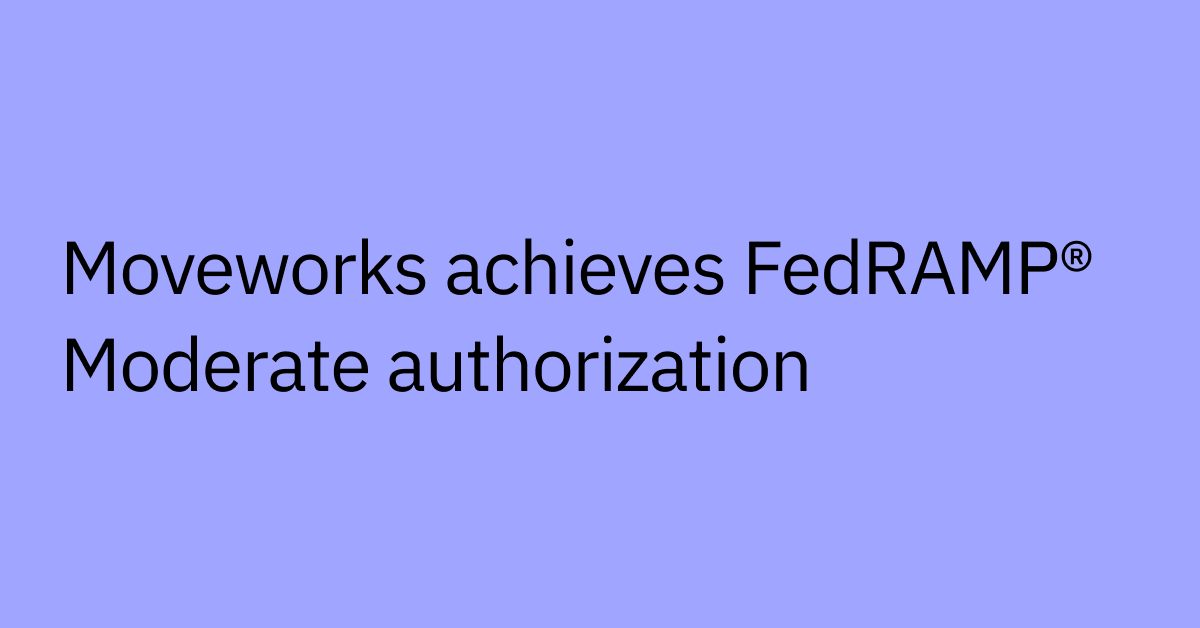Table of contents
Highlights
- AI-powered ITIL tools modernize service management by automating incident resolution, change enablement, and analysis.
- They shift IT teams from reactive troubleshooting to proactive optimization powered by intelligent insights.
- Advanced AI capabilities—NLP, predictive analytics, and automation—strengthen accuracy and reduce manual work.
- Enterprises should prioritize AI solutions that improve service outcomes with strong integrations, analytics, automation, and security standards.
- Moveworks AI Assistant supports ITIL-aligned workflows end to end, improving resolution speed and service quality.
Your CIO just announced a major digital transformation initiative aimed at improving service delivery. Everyone's excited about the potential.
Then reality sets in: Your existing Information Technology Infrastructure Library (ITIL) processes could be solid, but you may lack the intelligent tools you need to reap the benefits of this agile approach.
Modern ITIL frameworks offer great governance, however they can work even better when paired with the right AI tools to get the job effectively in today’s complex environments.
Many organizations are finding that AI-powered ITIL tools can help improve service quality, user satisfaction, and reduce operational costs. But with dozens of vendors claiming AI capabilities, how do you know which is best for you needs?
This guide will help you navigate ITIL AI tools, identify what matters most, and learn how pairing AI with ITIL practices enables enterprise success.
What ITIL AI tools should help you do
ITIL AI tools are software solutions that use artificial intelligence to support ITIL (Information Technology Infrastructure Library) best practices for standardizing IT service management processes.
While earlier ITIL versions focused on more rigid, standardized processes, modern ITIL 4 introduced a more flexible, holistic approach by integrating agile, DevOps, and AI technologies, to better adapt to evolving business and technological needs.
AI ITIL tools leverage AI to streamline tasks such as incident management, problem resolution, and service request fulfillment, helping to enhance service quality and efficiency, while also adapting to your complex environment and dynamic business goals.
ITIL frameworks meet modern automation needs
ITIL is a set of best practices for delivering efficient IT services that align with business needs. It remains the gold standard for IT service management. Its structured approach to service strategy, design, transition, operation, and continuous improvement provides a base foundation for delivering consistent, high-quality IT services.
But digital ecosystems are much different than they used to be.
Your team is likely managing cloud resources alongside on-premises infrastructure. There are more applications out there than ever, often connected together. And your end users generally expect immediate, 24/7 service request support across multiple channels. Thankfully, AI capabilites make delivering on these goals much easier.
How AI optimizes ITIL execution
AI brings a new dimension to ITIL implementation, helping your team to work smarter rather than harder. Different types of AI are able to contribute in unique ways:
- Conversational AI makes self-service more accessible by understanding everyday language requests from users. Instead of getting bogged down in a swirl of complex portals or forms, users are able to simply ask for what they need in their own words, using the tools they already use like Slack and Microsoft Teams.
- Machine learning (ML) can identify patterns in your service data, helping to proactively predict incidents before they occur and suggesting solutions based on historical resolution data.
- Generative AI is able to assist with creating and maintaining knowledge base content, making information more accessible and relevant to both end users and support staff.
These technologies have the potential to change how you implement key ITIL processes:
Less sophisticated AI solutions can fall short of these capabilities. They might offer basic automation but lack the intelligence to adapt to changing conditions or handle complex scenarios. The result can be ineffective incident prioritization, missed opportunities for problem prevention, and limited improvements.
Here's what different kinds of AI-powered ITIL tools make possible, and how they enhance ITIL practices:
AI-Powered ITIL Tool | Functionality | ITIL Practices Enhanced |
AI-Powered Chatbots | Natural Language Processing (NLP) powered chatbots can handle basic user queries, automate ticket logging, and provide instant responses to common issues. | Service Desk: Improves first-line support, reducing the burden on human agents. Incident Management: Automated incident logging, categorization, and initial response. Service Request Management: Automates basic service request fulfillment. Knowledge Management: Provides users with relevant articles and solutions. |
AI for Incident and Problem Management | AI can analyze historical incident data to predict potential outages, identify patterns, and suggest resolutions. It can also assist in root cause analysis for problem management. | Incident Management: Faster incident resolution and proactive issue detection. Problem Management: Automated root cause analysis and problem identification. Knowledge Management: Identifies and populates knowledge base with solutions. |
AI in Change Management | AI can analyze the impact of planned changes on IT infrastructure, evaluate risks, and suggest optimal change windows. | Change Enablement: Reduces the risk and disruption caused by changes. Risk Management: Identifies potential risks associated with proposed changes. |
AI-Powered Automation in Service Request Fulfillment | AI and Robotic Process Automation (RPA) can automate routine tasks involved in fulfilling service requests, such as password resets or software installations. | Service Request Management: Faster and more efficient fulfillment of service requests. Automation: Reduces manual effort and human errors. |
AI-Powered Knowledge Management | AI can automatically categorize, tag, and improve the searchability of knowledge articles, making it easier for both users and support staff to find relevant information. | Knowledge Management: Aid discoverability and usability of knowledge assets. Service Desk: Empowers users with self-service capabilities. |
Key features to look for in an ITIL AI tool
When choosing an AI tool for your ITIL processes, start by figuring out your organization’s biggest challenges. Are you struggling with high ticket volumes? Knowledge management issues? Change approval bottlenecks?
Knowing exactly what your specific pain points are helps prioritize features. However, there are several capabilities that every enterprise ITIL AI solution should offer:
Advanced analytics
Continuous improvement is a big part of ITIL, and advanced analytics give you the real-time insights needed to keep things moving forward. Look for tools that offer:
- Analysis of historical ticket data to identify recurring issues
- Performance tracking against SLAs and KPIs
- Actionable recommendations for process optimization
- Predictive capabilities to identify potential service disruptions before they happen
These analytics turn ITIL into a proactive framework, helping you tackle issues before they affect users while constantly improving how you deliver your services.
Integrations across the entire tech stack
Your IT environment likely includes dozens (if not hundreds) of applications and services. Effective ITIL AI tools need to easily plug into this ecosystem to provide value.
When evaluating integration capabilities, consider your current and future technology needs. Does the solution integrate with your ITSM platform? Collaboration tools like Teams or Slack? Enterprise applications such as Workday or Salesforce?
Without solid integrations, your data stays siloed, workflows can fall apart, and automation becomes a missed opportunity. Strong integration capabilities help to make sure your AI tool can gets the info it needs while supporting process automation from start to finish.
What happens when tools don't integrate? Data inconsistencies emerge, manual work increases, and your team spends valuable time switching between systems.
And that’s exactly what your AI implementation should aim to eliminate.
Agentic workflow automation
There's a significant difference between basic rule-based automation and true intelligent agentic automation. Agentic automation is capable of taking independent action, making decisions, and executing them across multiple systems.
Using an agentic AI assistant for IT support lets employees complete complex tasks (like resetting passwords, checking ticket status, or requesting access) through natural language conversations without leaving their preferred communication channels.
Basic automation only suggests actions without being able to carry them out, leaving users to juggle multiple systems or wait for someone to step in manually. Assistants with agentic automation capacities can solve this problem enabling smoother, ITIL-aligned service processes.
Learn more about how ITSM AI assistants enhance employee support.
Enterprise-grade security and scalability
For enterprise organizations, especially those in regulated industries like healthcare, finance, and government, security is of the utmost importance.
When evaluating ITIL AI tools, look for compliance with relevant standards and frameworks like GDPR, CCPA, HIPAA, ISO 27001, and others, depending on your industry.
Additional security features to consider include role-based access controls, comprehensive audit logs, data encryption, and authentication options.
Equally important is the solution's ability to scale with your organization. Will it handle increased load as your company grows? Can it adapt to new business units or geographic expansions? The right solution grows with you without requiring significant additional resources.
Usability
Even the most sophisticated AI tool provides limited value if not adopted. That's why a good user experience is especially important for adoption and ROI.
Look for solutions with intuitive interfaces that require minimal training. Natural language capabilities that understand user intent, regardless of how requests are phrased. Contextual understanding and personalization based on user roles and location.
Ready-to-use solutions that are easy to implement and don’t require much in-house AI expertise can provide a quicker time to value.
Solution comparisons: Make the most of demos and free trials
Don't rely solely on vendor presentations. Hands-on testing through demos and free trials provides invaluable insights into how solutions perform in your specific environment.
Make sure you know what to test
Go into demos with a clear testing plan that covers your most important use cases:
- Ticket classification accuracy
- Automated resolution capabilities for common issues
- Accurate knowledge retrieval
- Integration with your existing tools
- User experience for both IT staff and end-users
- Customization options for your specific processes
AI tools perform best with high-quality data. During any evaluation, assess whether your organization has sufficient historical data for training and if the vendor provides tools to address data quality challenges.
Connect with the right team members and tools
Effective evaluation requires input from various stakeholders across your organization:
- ITSM owners who understand your current processes
- Service desk leads who can evaluate daily operational efficiency and impact
- Security and compliance teams for risk assessment
- End-users who will interact with self-service functionalities
Additionally, make sure that you test integrations with your primary systems. Look for tools that meet interoperability standards and provide APIs to facilitate data exchange between your new AI-driven tool and existing ITSM solutions.
Maintain a future-forward mindset
Technology evolves quickly, and your chosen solution should adapt and grow with your organization. During evaluation, ask vendors about:
- Product roadmap and release frequency
- AI model updates and improvement processes
- Scalability planning for growth scenarios
- Training resources and ongoing support
- Customer success programs and community resources
The right vendor should be a partner in your ITIL AI journey, so look for companies that demonstrate a deep understanding of ITIL principles, and have a track record of other successful enterprise implementations.
Turn ITIL best practices into real-world impact with Moveworks
Moveworks helps support ITIL practices with using an agentic AI Assistant that is secure, adaptive, and powerful solution to find answers and automate tasks across all enterprise systems and applications.
- Find answers and automate tasks within all your business systems: Combine powerful search and generative AI capabilities with the ability to take immediate action and automate tasks end-to-end within seconds across your tech stack.
- Your entire employee experience — now on a single screen. Using advanced natural language understanding, Moveworks EXI analyzes your support tickets in real time, so you know exactly what to solve next.
Drive continuous improvement, tackle problems proactively, and optimize your support services with Moveworks AI-powered platform — and help to boost user satisfaction while lightening the load on your service desk too.
See how Moveworks helps enable ITIL best practices: Request your demo today!



